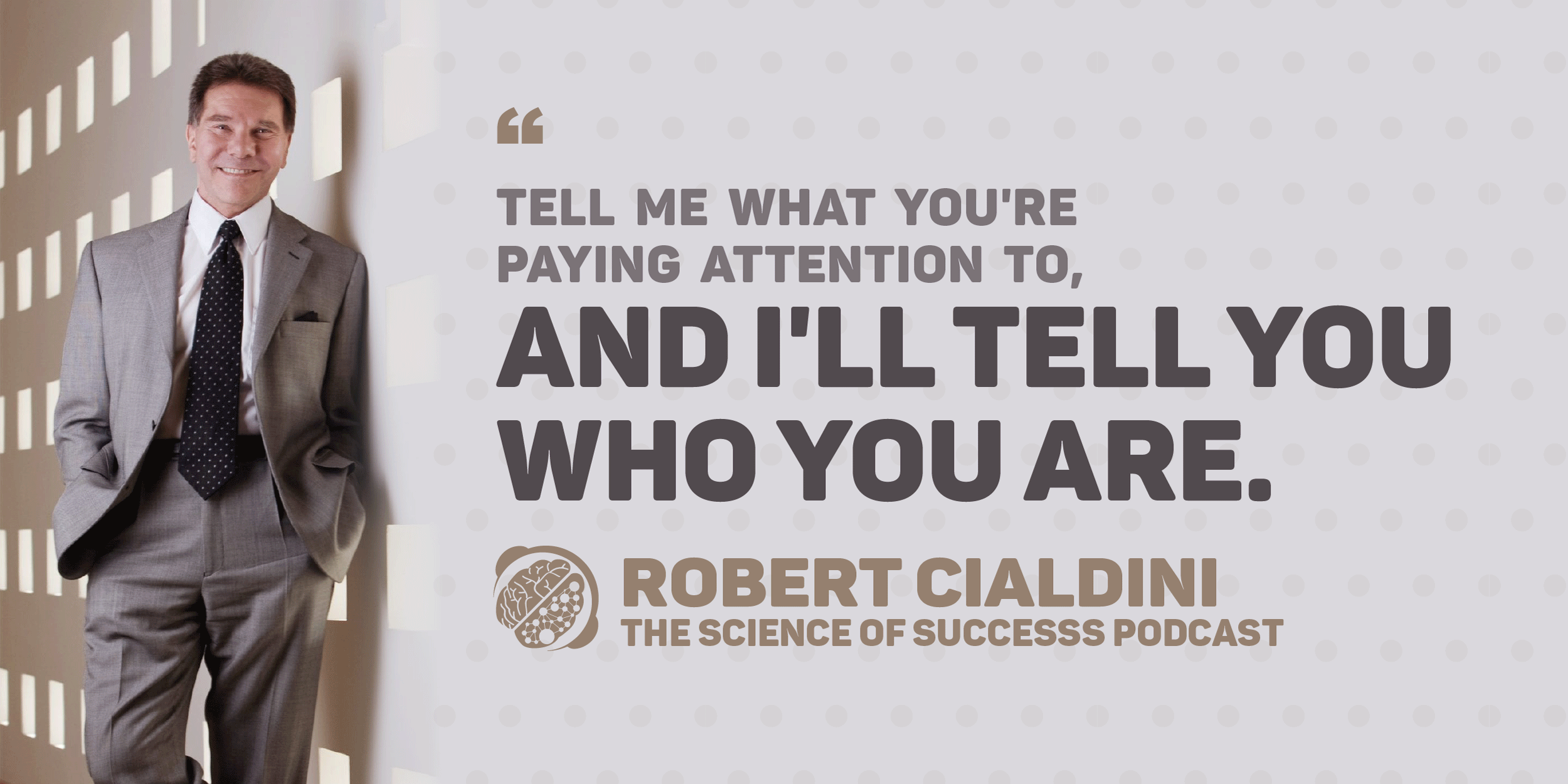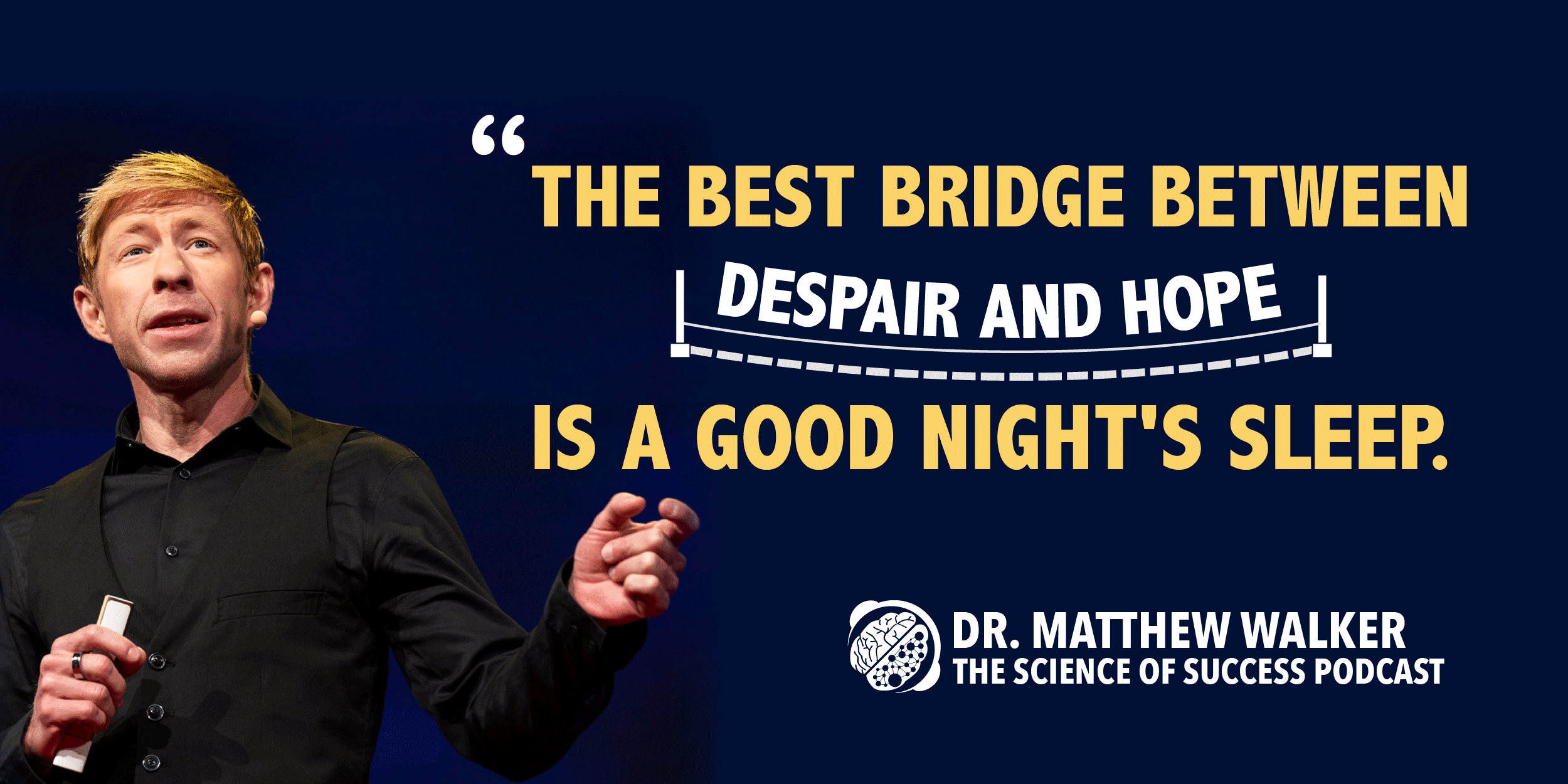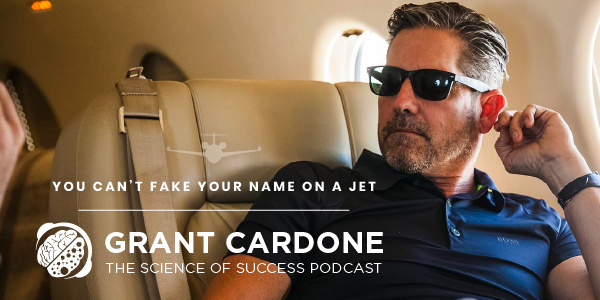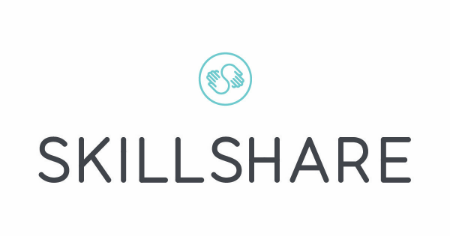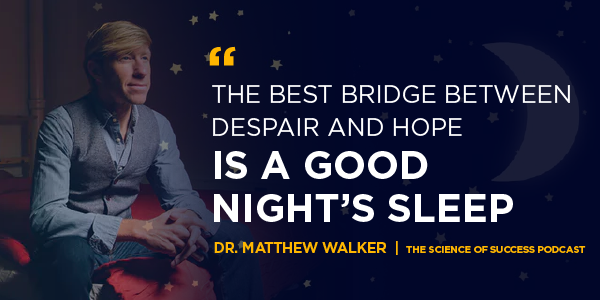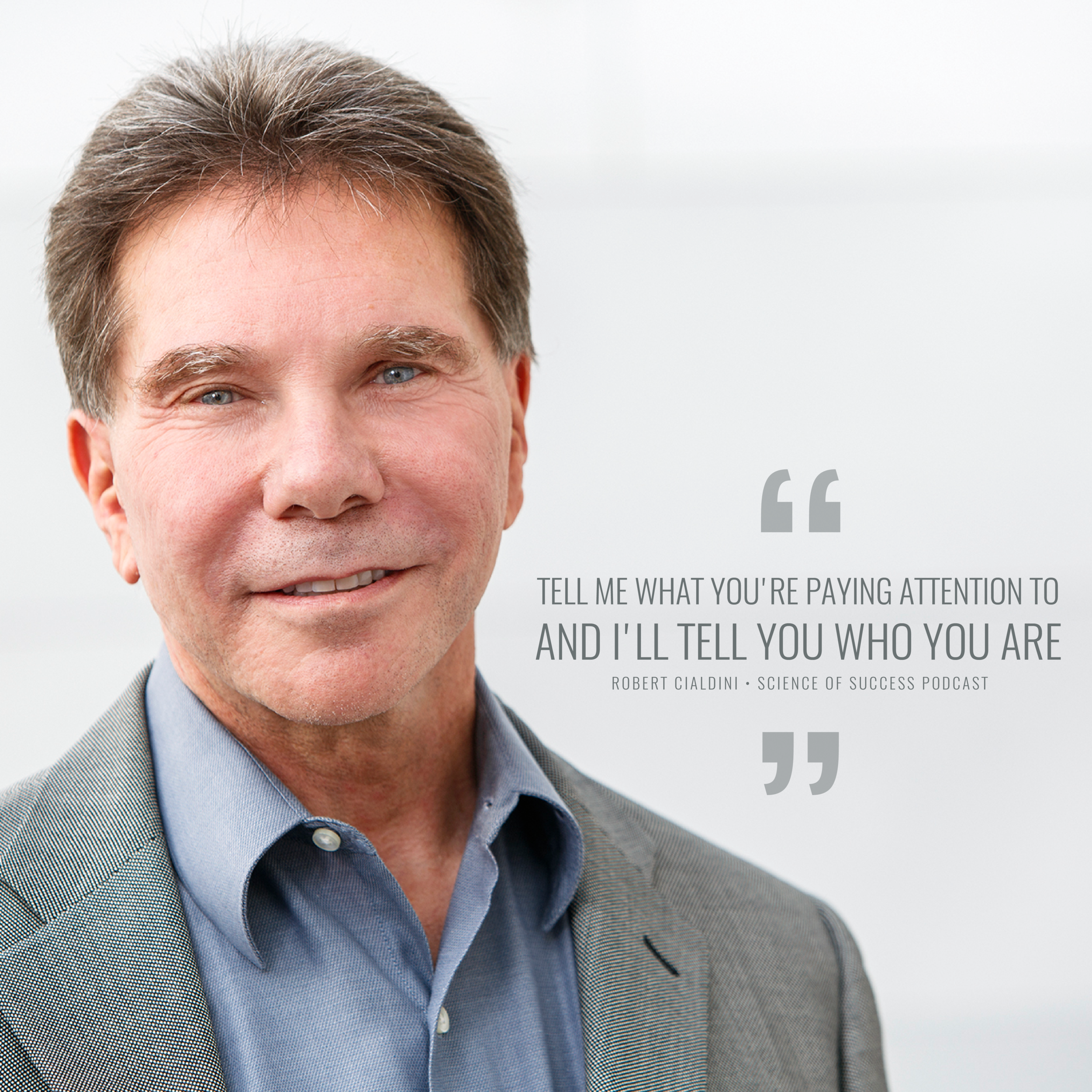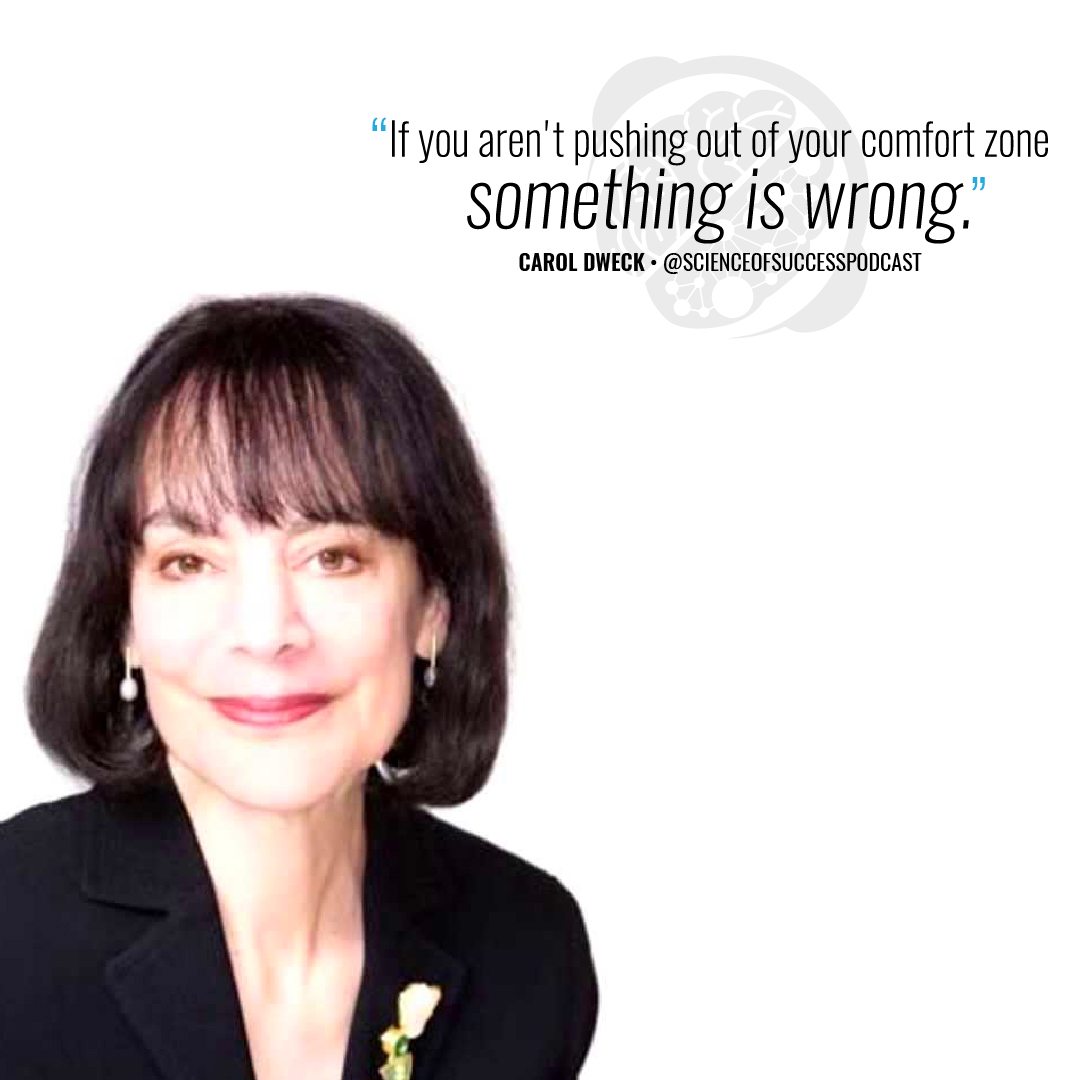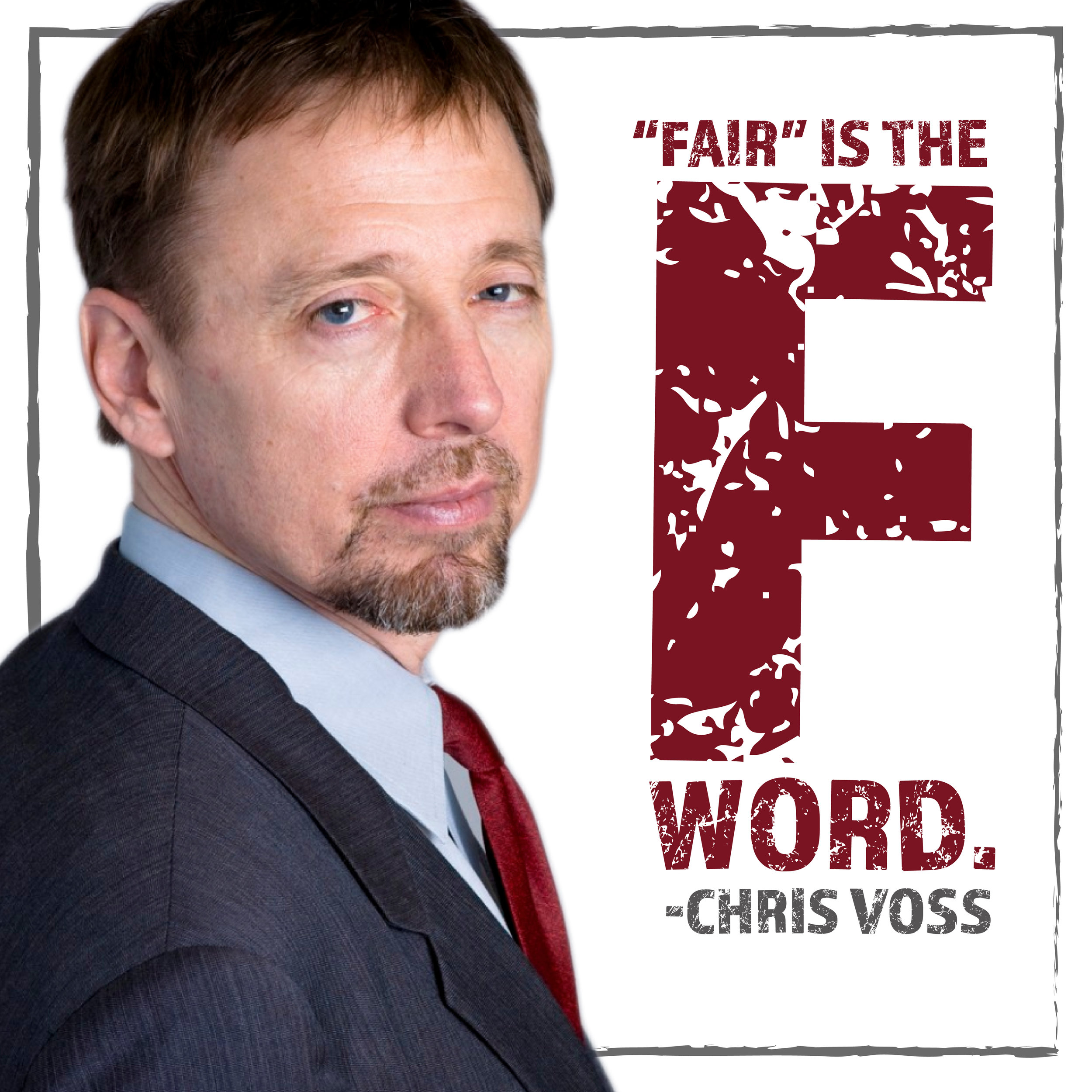FTA - The Godfather of Influence, Dr. Robert Cialdini
In this episode we discuss an old trick palm readers use that you can leverage to get people to do what you want, why persuasion does not lie just in the message itself, but rather in how the message is presented, what the research reveals about why the context matters as much, if not more, than the content itself, why you shouldn’t ask people for their opinion but instead ask someone for their advice, how small differences that seem trivial make a HUGE impact on human behavior, and much more with Dr. Robert Cialdini.
Dr. Robert Cialdini is the president and CEO of INFLUENCE AT WORK. He is the multi best selling author of Influence: The Psychology of Persuasion, Pre-Suasion: A Revolutionary Way To Influence and Persuade, and his most recent book Influence, New and Expanded: The Psychology of Persuasion, available this May. He is also currently a Regents Professor Eremites of Psychology and Marketing at the Arizona State University. Commonly referred to as “The Godfather Of Influence” Robert’s work has been featured around the world with clients such as Twitter, Microsoft, London Business Forum, SXSW, and more.
We discuss:
How very small differences can have very big effect on human behavior.
How researchers boosted their response rate from 29% to 77.3% with one simple question
How can a photo change your ability to solve problems more effectively?
How to create a state of mind in your recipient that makes them more open to your request!
This one trick palm readers use that you can leverage to get people to do what you want
The Power of persuasion does not lie just in the message itself, but rather in how the message is presented
How did a small change in communication greatly affect the United Kingdom's tax collection.
Context matters as much as or more than content
How can you ethically leverage the concepts of pre-suasion?
One thing you can do to hack job interviews using this simple tactic
Why you shouldn’t ask people for their opinion but instead ask someone for their advice
Ask yourself “What is it about my message that will make it most wise for people to say yes to it”
Is it possible to use pre-suasion on ourselves?
How changing a simple image can greatly improve your ability to solve problems.
"Tell me what you’re paying attention to, and I'll tell you who you are"
And much more!
Thank you so much for listening!
Please SUBSCRIBE and LEAVE US A REVIEW on iTunes! (Click here for instructions on how to do that).
Commit Action pairs you with a dedicated accountability coach whose sole job is to give you clarity on what needs to get done and the accountability to make sure you do it.
Our coaches help you eliminate overwhelm, destroy self-sabotage, lock in laser focus and help you get more done in a few days than most people do in a month.
This January, Commit Action membership includes a 6 part digital workshop to optimize your plans for 2021! Learn how to lock in goals hard-wired to avoid self sabotage, then put them into action with our productivity coaching.
Dial in your optimized 2021 game plan. Double your productivity in 30 days. No will power required.
Use coupon code “ScienceNewYear” at checkout to receive a $100 discount on your first month of membership!
Want To Dig In More?! - Here’s The Show Notes, Links, & Research
General
Books
Influence, New and Expanded: The Psychology of Persuasion by Robert B. Cialdini (Pre-Order May 4, 2021)
Robert B. Cialdini’s Amazon Author Page
Misc
[Website] Influence at Work
[Book] Influence: The Psychology of Persuasion by Robert B. Cialdini
[Book] Pre-Suasion: A Revolutionary Way to Influence and Persuade by Robert Cialdini Ph.D.
[SOS “Weapons of Influence Series”] Series Playlist
[SOS “Weapons of Influence Series”] Why An Almost-Empty Cookie Jar Is More Valuable Than A Full One
[SOS “Weapons of Influence Series”] Why Co-Pilots May Ignore Instinct and Let A Plane Crash
[SOS “Weapons of Influence Series”] Why Ugly Criminals Are 2X As Likely To Go To Prison
[SOS “Weapons of Influence Series”] Why You Should Always Ask the Guy in the Blue Jacket for Help
[SOS “Weapons of Influence Series”] The Power and Danger of a Seemingly Innocuous Commitment
[SOS “Weapons of Influence Series”] How To Triple the Rate of Your Success With One Simple Question
Episode Transcript
ANNOUNCER: Welcome to the Science of Success, the number one evidence-based growth podcast on the internet, bringing the world's top experts right to you. Introducing your hosts; Matt Bodnar and Austin Fabel.
[00:00:21] AF: Hello everyone and welcome to another episode of The Science of Success, the number one evidence-based growth podcast on the internet with over 5 million downloads and listeners like you in over 100 countries. I'm your co-host, Austin Fable, and today we have an absolutely incredible interview from the archives for bringing it back, the godfather of influence himself, Dr. Robert Cialdini. This was a truly major turning point in the show. Matt and I had both been and still continue to be huge fans of Dr. Cialdini and his work. His book Influence was actually the first real personal development/nonfiction book I'd ever read. It was the catalyst for me getting interested in this world and a lot of the things we discuss in this podcast. His interview was incredibly relevant. His story is impactful and we had a great time speaking with him.
But before we dig in, you knew it was coming, are you enjoying the show and the content that we work very hard to put out every week for you? If so, there are two incredibly easy, yet very impactful things you can do for Matt and I. First, leave us a quick five-star review in your podcast listening platform of choice. It's going to help other people find the show just like you. You're going to be doing your part to help impact lives. And we thank you. Next, go to our homepage at www.successpodcast.com and sign up for our email list today. As I'm sure you know by now, our subscribers are the first to know about all the comings and goings of the show, but you also gain access to exclusive content you won't find anywhere else.
Now, are you on the go? That's fine. Sign up for the email list just by texting the word SMARTER, that's S-M-A-R-T-E-R to the number 44222 and you'll be signed up immediately today. Now, if you haven't already, check out last week's episode with Gay Hendricks and Carol Klein. We dig into how you can create more conscious luck in your life. Find yourself in the right place at the right time more often. And some of the real life stories behind finding and creating your own luck.
Now in this episode we interview our incredible guest, Dr. Robert Cialdini. Dr. Cialdini is the president and CEO of Influence at Work. He is the multi-best-selling author of Influence: The Psychology of Persuasion and his latest book, Pre-suasion: A Revolutionary Way to Influence and Persuade. He is currently a Regents; Professor Emeritus of Psychology and Marketing at Arizona State University, commonly referred to as the Godfather of Influence, as I mentioned earlier. Robert's work has been featured around the world with clients such as Twitter, Microsoft, London Business Forum, South by Southwest and more. This is a truly incredible interview. Like I said, a turning point for the show. No question about it. Without further ado, here's the interview with Dr. Robert Cialdini, the godfather of influence himself.
[00:03:01] JM: Bob, welcome to the science of success.
[00:03:03] RC: Thank you, Matt. I’m pleased to be with you and your listeners.
[00:03:08] MB: We’re incredibly excited to have you on here today. I’m sure, many long time listeners will be familiar with you and a lot of your work. I want to focus on your new book, Pre-Suasion. We’ve talked — We’ve done a whole series on the show about the principles of influence and how vital those are. Tell me a little about how did you go from the six principles of influence to the concept of pre-suasion?
[00:03:33] RC: It took me a long time. It was 30 years between the writing of the book Influence and Pre-Suasion, and the truth is I never had an idea big enough to compete with the impact that influence had had. I didn't want to plan to push next to this tree that influence had become. I wanted to wait until I had another seed for a tree, and that didn't arrive until the idea for persuasion.
Opposed to Influence, which covers what best to build into a message to get agreement, pre-suasion describes the process of gaining agreement with a message before it's been sent, and although that may seem like some form of magic, it’s not. It's established science.
[00:04:23] MB: Tell me a little bit more about that idea. How can we get someone to buy into an idea before we’ve even presented it to them?
[00:04:31] RC: There is a key moment that allows a communicator to create a state of mind in recipients that is consistent with the forthcoming message. It's the moment in which we can arrange for others to be attuned to our message before they encounter it. That's a crucial step for maximizing desired change.
For example, in one study, when researchers approached individuals and asked for help with the marketing survey, only 29% agreed to participate. If the researchers approached the second sample and preceded that request with a simple pre-suasive question, “Do you consider yourself a helpful person?” Now, 77.3% volunteered. Why? Because when they were asked before the request if they were helpful, nearly everyone said yes. Then when the request occurred, most agreed to participate in order to be consistent with the recently activated idea of themselves as helpful people.
[00:05:41] MB: That’s fascinating, finding — Basically, more than doubles the effectiveness by simply asking a question which leverages the commitment consistency tendency.
[00:05:51] RC: Right, and there's a further study that shows that it's not simply getting people to make a commitment publicly. It's getting them to reflect on a particular trait that they might have. In another study, people were asked to try a new soft drink. Somebody walked up to them on the street, handed them a flyer that asked them to try a new soft drink. To do so, they had to give this stranger their email address. Under those circumstances, only 30% were interested in doing that. If at the top of the flyer there was a question, “Do you consider yourself an adventurous person?” Now, 55% gave their email address to a stranger so that they could access something new. What these researchers did was put people in touch with their adventurous side simply by asking the question, and then people behaved in a way that was congruent with that adventurous side.
[00:07:05] MB: I believe you’ve talked about in the past how you used to be a palm reader, and this is similar to the lesson that fortunetellers and palm readers used to get people to sort of agree with what they're about to say.
[00:07:18] RC: Exactly. I learned how to be an amateur palm reader, and I tried using the system in various ways to see how accurate it really was and I found that it wasn't any good at all at describing who people were, what their fortunes were. It was very accurate at getting people to reflect on a particular aspect of themselves, that I could claim I saw in their palm.
For example, supposed I was reading your palm and I bent back your thumb and I said, “Matt, I can tell from the resistance here that you are very stubborn person. If somebody tries to push you in the direction that you don't want to go you're going to push back.” You might do more than just refuse, you might do the opposite out of resistance and reactants.
What that will do is send you down a memory shoot of the times when you were, indeed, stubborn and resistant and you will say to me — You’ll hit some instances and you’ll say to me, “Yeah, that's right.” That's who I am.”
Now if instead I bent back your thumb, very same thumb, and said, “You know, Matt, I can see that you're actually a flexible individual. You're willing to change your mind if you encounter information to suggest that you've been wrong in the past.” That will send you down another different memory shoot where you will encounter times when you were flexible and you will look up to me from that palm that I'm reading and you'll say, “That's right. That's who I am.”
I can get you to focus on a particular trait or capacity that you have, and as result, make you more likely to think of yourself as that kind of individual. There's an old saying that; tell me what you're paying attention to and I'll tell you who you are. If you're always watching sports on ESPN, I can tell that you’re a fan. If you're always reading gourmet magazines, I can tell that you’re a foodie by what you're paying attention to.
Well, with the new behavioral science tells us is that getting you to pay attention to something doesn't just reveal who you are, it makes you who you are in that moment. I can make you a flexible individual. I can make you a stubborn individual by what I focus you on first.
[00:10:24] MB: It's fascinating, and even when you're saying those examples, as you’ve said it, I sort of felt myself almost in a reaction just starting to think about all the time that I've been stubborn. Then when you switched to flexible, I started thinking about, “Oh, yeah. All these times I’ve been flexible,” and then I caught myself and I was like, “Hold on, I'm getting primed to think about these things.”
[00:10:44] RC: Right, and that's the trick that palm readers use, but it's now something that is available to communicators to move us in various directions. We have to be very careful. When we encounter a message, not simply to look inside the message for evidence of the persuasive strategies of the communicator, we have to ask ourselves what happened just before I received that message.
I’ll give you an example, there was a study done of an online furniture store that specialized in sofas. For half of their visitors to their website they sent them to a landing page that had as its background wallpaper fluffy soft clouds. For the other half of the visitors, they went to a landing page that had small coins, pennies, as the landing page depiction, background depiction. Those people who saw the clouds then rated comfort as more important in buying a sofa than before. They then searched the site for comfort related information and they preferred to purchase more comfortable sofas.
Those were sent to the background landing page of small coins, pennies, rated cost as more important in their decision of buying a sofa. Search the site for price information and preferred to purchase inexpensive sofas, and when they were asked afterward, “Did those clouds or coins make any difference in your choices?” They laughed. They said, “Of course not. I’m a freestanding entity. I decide based on my personal preferences of who I am and what I want.” They didn’t recognize that the clouds and the coins changed who they were and what they wanted in that moment.
[00:13:09] MB: I think you’ve raised two really, really important point, and I wanted to dig into each of these. One sis this idea that the importance, the notion that the persuasion doesn't necessarily lie just within the message, but rather the context of the message is presented in the things that happened before the message. Then the second thing you just brought up, which I think is vital and really underscores how important, how powerful, and sometimes how insidious this can be, is the idea that people consciously have no awareness of the fact that they're being primed to think these certain ways and make certain decisions based on what they would consider consciously to be completely irrelevant factors.
[00:13:50] RC: Exactly. I’ll give you another example. A study was done in France where they went to a shopping mall and had a very attractive young man walk up to young women who were strolling along through the halls of the shopping mall. He stopped them, gave them a compliment and asked them for their phone number so he could call them for a date later.
Under most circumstances, his success was dismal, where they were passing various kinds of stories. Only about 13% of the time did he get a phone number, even though he was selected to be very attractive movie star looks kind a guy, but if they were passing one particular kind of shop, his success doubled. It was a flower shop, because flowers are associated with romance and not one of these young men when asked afterwards recognized what had happened to them.
[00:14:54] MB: That reminds me of another example, which I think tell me if this is the same sort of psychological tendency, but I think it was when people were purchasing wine in a wine store, if they put on German music, it was like 70% of the purchases would be German wine. If they put on French music, 70% of the purchases would be French wine, and yet when they asked consumers if the music have any impact on the wine purchase, everyone said that it had no impact on then.
[00:15:19] RC: Exactly. Right. This is a dangerous stick of dynamite that we have now in the idea of pre-suasion. That's why we have to be so ethical about the use of this. We have dynamite. We can people in our direction and they won't even recognize it. We have to be very careful that we take the ethics and their interests into account as communicators. On the recipient side, we also have to be very careful that as recipients of this information we don't dismiss the context in which the information was presented.
[00:16:06] MB: That gets back to the first point I talked about, which I want to dig into a little bit more, the idea that the message itself is not were all the persuasion takes place, and it can take place around the message or before the message. Tell me more about that phenomenon, that notion.
[00:16:21] RC: Yeah. Remember the idea from back in the 70s, the medium is the message? This notion that the channel in which you send the message can be a message itself. If you meet somebody face-to-face, versus you call them on the phone or you send them an email, that's a message itself that you've taken the time to meet with them face-to-face rather than send them an email. The message is partially the medium.
What we've learned since then is that not only is the medium the message, the messenger is the message. Sometimes, simply establishing one's credibility as a communicator, as an honest and informed a broker of information can be enough to be the message. It's often the case that people say yes to something simply because of the credentials of the communicator. There was a sort of alarming study that was done that measured brain activity when people were given communications about a particular economic decision that they could make.
When it was just sent to them by an unknown communicator, those sectors of their brain associated with cognitive analysis lit up just as you would expect. When they were told that the communicator was a distinguished professor of economics at the University of Chicago, their analysis sectors of their brain shut down, they flat-lined. Instead, another's sector of the brain lit up which had to do with attribution of responsibility for messages. Who is this person essentially?
The messenger was the message, the context. Before there was even a message sold the audience. There is another way in which we can think of it. The multitude is the message. Not only is the medium the message, or the messenger the message, the multitude is the message. If a lot of other people are doing something, that's an indication that it's the right thing to do before you have even encountered the message.
For, example in the United Kingdom, they have a problem with people who pay their taxes late and they send them message, the tax office, that says, “If you don't pay in a certain time, here will be the consequences,” and they get about 68% of the people responding by paying their taxes after getting that message.
If instead they say the great majority of UK citizens do pay their taxes on time, now this goes to 73%. If instead they go even further and say, “The great majority of taxpayers in your community pay their taxes on time,” it goes to 79%. Learning what most others are doing is a message itself. All context to the content of the message that is yet to come.
[00:20:21] MB: The word context, that’s a great way to kind of succinctly capture this notion, which is the idea of the context matters as much, or maybe more than content in many cases.
[00:20:32] RC: Often, more than content.
[00:20:35] MB: How can we leverage some of these principles? Let’s think about for those who are operating kind of ethically in a sound way, how can they leverage these principles to influence people in the way that they want to?
[00:20:50] RC: Let's take the workplace as an example. Suppose you're applying for a job and there is a meeting that you have with an evaluator. Sometimes it's a team of evaluators, sometimes just a single person, and you go in and what we've always been taught to say is, “I'm very happy to be here. I want to answer all of your questions that you would have for me. Here’s I'm going to suggest we do.” We also say, “But I’m curious. I have a question for you. Why did you invite me here today? What was it about my resume that was attractive to you?” Here's what they will do, they will begin by focusing on your strengths. The context for the interview will be your strengths. That will be the starting point for the interview. They will search your resume. They'll say, “Well, it's because your credentials are what we want, or it's because your values that you indicated fit with our value statement.” That will be the launching point now. You’ll also be informed about what it is that they think is most important. You’ll be able to build on that.
I have an acquaintance who claims he's gotten three straight better jobs in a row using this tactic. Okay. Now let's say you got that job and you've got a new initiative that you want to develop, but you know you need they buy-in of a colleague of yours to send this idea forward. You approach that person, maybe give that individual a draft or a blueprint of your idea and ask for that person's advice. That's a mistake, not to include this individual, and you ask for that person's opinion. I'm sorry. I meant to say a a pin. You ask for that person's opinion. It's a mistake to ask for that person's opinion because when someone is asked for an opinion, that person takes a half step back from you and goes inside intra-specs and separates. Instead, if you change one word pre-suasively and ask for that person's advice rather than opinion, that individual takes a half step toward you psychologically, sees him or herself as a partner in this process.
The research shows that person will now become more supportive of your idea than if you ask for an opinion. There's a saying; when you ask for someone's advice, you're usually looking for an accomplice. Here’s what the behavioral science says. If you get that advice, you usually get that accomplice, and that's what you want when you want something forward in an organization.
Okay, and then one last thing. Now let's say you've got a meeting to present your idea and it's got a particular budget and you have figured out the budget so that it will be $75,123 to accomplish your idea, to get it launched, and what you typically do is to reduce that to 75,000. You round it off to $75,000. That's a mistake, because if you say — Research shows, if you say 75,123, people assume that you have done your homework. You have figured this out. You are knowledgeable about the pros and cons of the budget. You've got it down to the dollar. Even though it will be more money by $123, then $75,000 figure, people will be more likely to accept that budget under those circumstances.
I saw another study recently, remarkable. Back the UK, again, with the tax office. They got this idea, “Hey, let's tell people that the majority of taxpayers pay on time.” They sent one message that said nine out of 10 of the people in your community to pay their taxes on time. For another group, they sent a message that said 88% pay their taxes on time. The 88% message got twice as much tax payments because it was a precise number, rather than a rounded one that seemed like it was pulled out of the air. That's one thing you can do before you even begin, begin with a budget. Put it at the top of your proposal that has a precise number rather than a rounded one.
[00:26:34] MB: It's fascinating and I think it can't be overlooked that the small differences that seem so trivial to someone who’s not consciously applying the principles of influence, the principles of pre-suasion, they seem so irrelevant and yet they make a tremendous impact on human behavior.
[00:26:53] RC: You're precisely right about that, man. I'll tell you something how I decided to write this book, pre-suasion. I had been seeing studies in the research literature suggesting something like this, but I haven't really put it together till one day there was a knock at my door. I answered it to find the man who was asking me to contribute to a cause. After school programs for children in my district whose parents were working, who would have to get child care for them and so on. We would have education opportunities for them after school.
He didn't show me any credentials to indicate that he was from the school district and I hadn't heard that the school district was initiating such a program, and yet I gave him more money than I would've given to someone from the United Way or the Cancer Society that I normally give. After I closed the door, I remember thinking to myself what just happened here? I realized it wasn't the content of what he said. It was the context. He did something first that made me want to give money to this cause. He brought his seven-year-old daughter with him and was focused on children, and children's issues, and children's needs, and children's challenges. He put me in touch with that side of myself that became top of mind now and made me who I was in that moment, and I thought to myself, “Oh, there's a book here.”
[00:28:49] MB: That’s fascinating, and I think those are some great examples of how just by being a little bit conscious of it by thinking ahead and saying, “How can I set up my environment, or the presentation of the context for this particular piece of information to make it more effective?” There are so many lessons and strategies that can come out of that.
[00:29:10] RC: Yeah. I think the way to do it in an ethical fashion is to say to yourself as a communicator,” What is it about my message? What dimension of my message? What feature of it? What aspect of it will make it most wise for people to say yes?” That's what I should put. That concept is what I should put at top of mind in my audience before I send them the message. Something that will cause them to focus on a feature of what I have to offer that makes it wise for them to choose it.”
If we go back to that furniture store, that online furniture store example. If the best thing about the furniture at this store is the price of it, that's then pennies should be the first thing people encounter. Even though the more comfortable furniture may produce a bigger profit margin for the store, to be ethical they should not put clouds on their background wallpaper. They should put pennies, because their strength is the value, their low-cost. That's where we should send people if we’re going to use this ethically.
[00:30:47] MB: I’d love to look at another angle of the concept of pre-suasion. Is it possible — And what are some ways that we potentially could apply pre-suasion to influencing ourselves?
[00:31:01] RC: Yeah. This is really a good question, because it's what I think I've been able to use it for since I started thinking about this. Here's what I've done. If I have a task that requires me to be very thoughtful, there is a particular image I put at the top of my computer screen that research shows increases the likelihood that people will solve a difficult problem correctly. It's an image of Rodin’s The Thinker.
Research showed if you give business students, business school students a set of difficult problems and you asked them to solve those problems with a variety of different images, a nature scene and so on, the kind of thing you usually have as your screensaver or your background wallpaper. That's not as successful as if you give them an image of Rodin’s The Thinker. They actually solve 48% more problems correctly. We can do this to ourselves. We can put ourselves in a state of mind that is congruent with the goal of our message.
There's another study that shows that if you want people to expend a lot of energy in a task, persist at it and be energy driven with this task, show them a picture of a runner winning the race and that will increase their performance on that kind of task. What I do now is depending on the goal I have for a particular task, I choose an image that's congruent with that goal and put it there on the corner of my screen as I perform the task. We can do that.
[00:33:10] MB: That’s a great and such a simple strategy to implement that everybody listening could immediately put in place right now to sort of prime themselves with just the smallest thing in their environment to help them move towards whatever they're trying to achieve.
That said, what is one really simple piece of actionable advice you would give, almost as a form of homework to our listeners for them to implement some of the concepts we’ve talked about today?
[00:33:36] RC: Here’s a very simple thing. Very often, when we want people to move in a particular direction, we want them to change. It requires change. Here's what the research shows. If we ask them for change on a Monday or Tuesday will be more successful than if we asked them on a Thursday or Friday.
If we asked them for change on the first or second day of the month will be more successful than if we asked them on the last day of the month, or second to the last. Why? Because at the beginning of things, change is in — It's something new. Something has just changed, and change is in the air.
There's a study, for example, that showed that armed forces personnel here in the United States are often asked to contribute to a retirement plan so that when they retire they will have a good amount of money available to them and they’ve been resistant to that as a rule, except at one time after they have just changed locations to a new base. Then they become significantly more open to the idea of doing something new, of getting away from their old habits and moving to something new.
If as communicators we are interested in getting change, we can increase the likelihood that people will change in our direction by picking the right time. Once again, the context, rather than the content of our message is vitally important.
[00:35:32] MB: Where can people find you and your books online for people who want to do more research and dig in and learn more?
[00:35:40] RC: Yeah, probably the best place is on our website, influenceatwork.com, that's all one word influenceatwork.com, and they can get access to our books, our videos and so on, and opportunities for speaking or consulting, training, those kinds of things are available.
[00:36:05] MB: Bob, thank you so much for coming on the show and sharing all these incredible wisdom. We are huge fans of you and your work and it's truly been an honor to have you on the Science of Success today.
[00:36:16] RC: Thank you, Matt. I enjoyed being with you. It was a good set of questions, I have to say!
[00:36:21] MB: Thank you so much for listening to the Science of Success. We created this show to help you our listeners master evidence-based growth. I love hearing from listeners. If you want to reach out, share your story, or just say hi, shoot me an email. My email is matt@successpodcast.com. That’s M-A-T-T@successpodcast.com. I’d love to hear from you and I read and respond to every single listener e-mail.
I'm going to give you three reasons why you should sign up for our email list today by going to successpodcast.com, signing up right on the homepage. There are some incredible stuff that’s only available to those on the email list, so be sure to sign up, including an exclusive curated weekly e-mail from us called Mindset Monday, which is short, simple, filled with articles, stories, things that we found interesting and fascinating in the world of evidence-based growth in the last week.
Next, you're going to get an exclusive chance to shape the show, including voting on guests, submitting your own personal questions that we’ll ask guests on air and much more. Lastly, you’re going to get a free guide we created based on listener demand, our most popular guide, which is called How To Organize and Remember Everything. You can get it completely for free along with another surprise bonus guide by signing up and joining the email list today. Again, you can do that at successpodcast.com, sign up right at the homepage, or if you're on the go, just text the word “smarter”, S-M-A-R-T-E-R to the number 44222.
Remember, the greatest compliment you can give us is a referral to a friend either live or online. If you enjoyed this episode, please leave us an awesome review and subscribe on iTunes because that helps boost the algorithm, that helps us move up the iTunes rankings and helps more people discover the Science of Success.
Don't forget, if you want to get all the incredible information we talked about in the show, links transcripts, everything we discussed and much more, be sure to check out our show notes. You can get those at successpodcast.com, just hit the show notes button right at the top.
Thanks again, and we'll see you on the next episode of the Science of Success.
